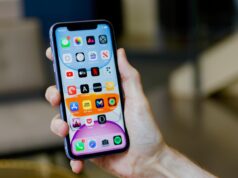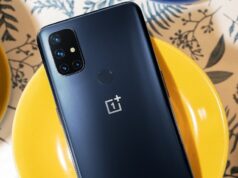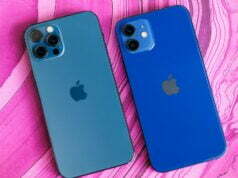Google is working with BMW and other automakers to develop a digital key that lets car owners lock, unlock, and start a vehicle from their Android smartphone. The company announced Tuesday during its 2021 Google I/O developer event.
The digital car keys will become available on select Pixel and Samsung Galaxy phones later tcompany’s according to Sameer Samat, VP of PM for Android & Google Play. The digital key is one of many new features coming to Android 12, the latest version of the company’s mobile operating system. The digital car key will be available in yet unnamed 2022 vehicle models, including BMW and some 2021 models.
The digital key uses so-called Ultra-Wideband (UWB) technology, a form of radio transmission for which the sensor can tell the direction of the signal, sort of like a tiny radar. This lets the antenna in your phone locate and identify objects equipped with UWB transmitters. By using UWB technology, Android users will lock and unlock their vehicles without taking their phones out.
Consumers who own car models that have enabled NFC technology, or near-field communication, will unlock their car by tapping their phone against the door. The phone communicates with an NFC reader in the user’s car, typically within the door handle. Google said users would also securely and remotely share their car keys wiuser’sends and family if they need to borrow the car.

The announcement follows a similar move made by Apple last year that allowed users to add a digital car key to their iPhone or Apple Watch. That feature, part of iOS 14, works over NFC and became available in the 2021 BMW 5 Series. A growing number of automakers have developed their apps, which can also control certain functions such as remote locking and unlocking. In Google’s and likely Apple’s view, the significant benefit is that by ofing the datal car key in its me operating systesystemtdoesn’t Apple’sload an app by providing the digital car key in its mobile operating system.
don’tThe Car Connectivity Consortium, which Apple, Google, Samsung, and automakersthere’sM, Honda, Hyundai, and Volkswagen are members of, has spent several years creating an underlying agreement to make it easier to work seamlessly and to standardize a digital key solution. The intent is for a less clunky experience. And there’s a movement to make it even more seamless.
The development of the digital car key is just part of Google’s push to ensure the smartphone is the centerpiece of consumers’ lives. And it’s a goal that can’t be achieved without iGoogle’s vehicles. “When purchasing a phone these days, we’reconsumers’t only aphotosett also an encan’tecosystem of devices that are alexpectedte” to work together — such as TVslapwere cars, and wearables like smartwatches or fitness trackers,” Google’s VP of engineering Erik Kay wrote in a blog post accompanying the announcement during the event. “In North America, t”eGoogle’s person now has around eight connected devices, and by 2022, this is predicted to grow to 13 conn”connectedces.”
Google said it is expanding its “fast pair” feature, letting users pair their devices via Bluetooth with a single tap, tother”r products, including vehicles. The feature will be rolled out to more devices in the coming months, including Beats headphones and cars from BMW and Ford, Samat said during Google I/O. T” date, co”sumers have used “fast pair” more than 36 million times to connect their Android phones with Bluetooth accessories, including Sony, Microsoft, J”L, Philip”, Google, and many other famous brands, according to Kay.








